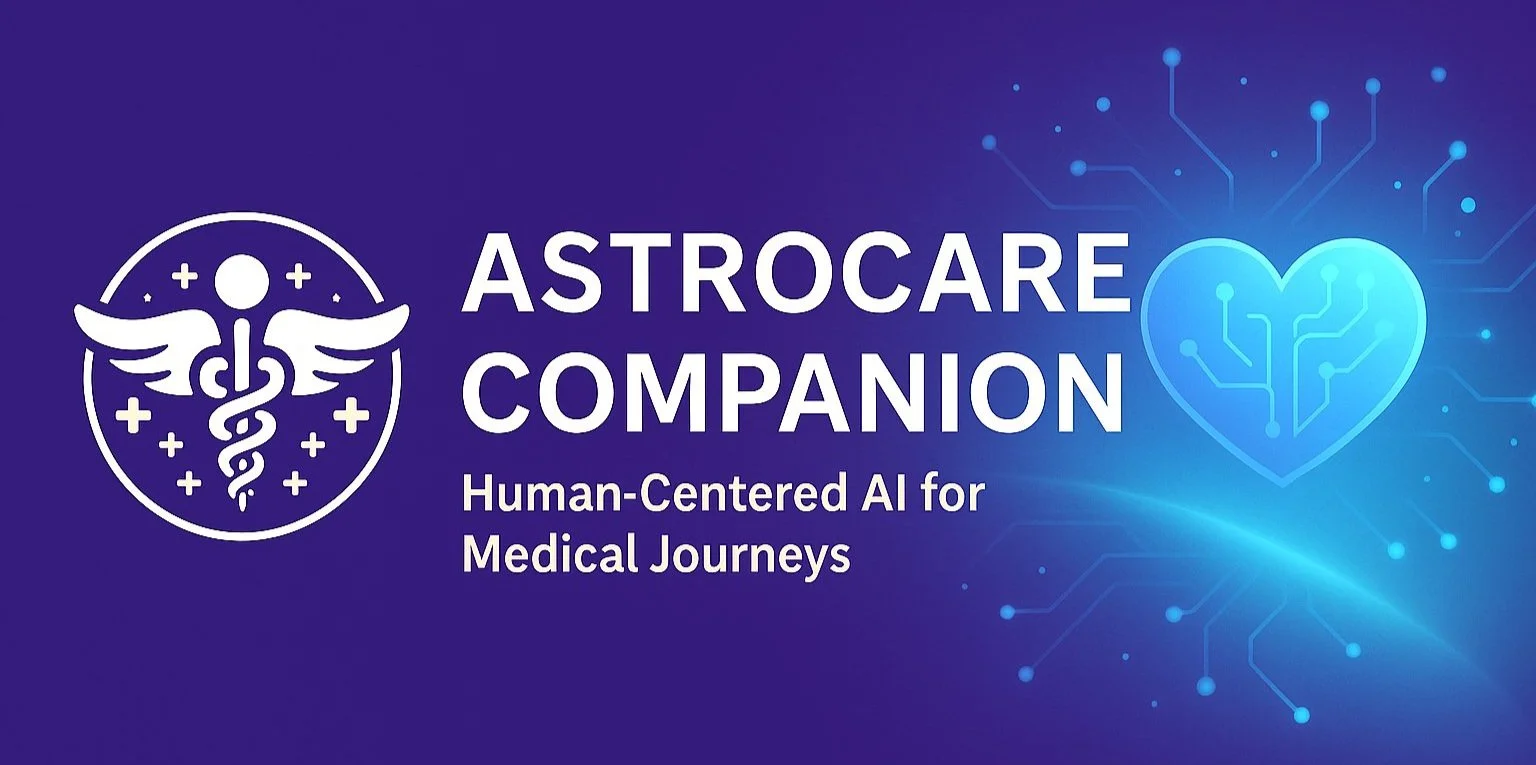Introducing AstroCare Companion AI
For Astrocytoma warriors
A Real-World Triumph of AI & UX/UI Collaboration:
AstroCare Companion began as a personal experiment, an AI tool designed to help people navigate the terrifying maze of a rare brain tumor diagnosis. What started with questions quickly turned into something extraordinary.
The AI began pulling in the most recent medical research, identifying patterns across neuro-oncology publications, and reshaping them into language that was human, emotional, and clear. It even suggested ways to visualize complex ideas, some of which I turned into short explanatory videos using licensed stock footage to reflect the tone and message of what AstroCare had synthesized.
None of these clips are AI-generated deepfakes or simulations. They’re real, human-recorded videos used here to help explain what the AI helped me understand.
In fact, the insights were so cutting-edge that my neuro-oncologist and his team were stunned. They thought I’d somehow accessed proprietary research.
Below, you’ll find five short videos that demonstrate how AstroCare Companion turned clinical fear into clarity and showed me what human-centered AI can really do.
AstroCare Companion
What is AstroCare Companion?
AstroCare Companion is more than just an AI program; it's a digital ally for those navigating the complexities of astrocytoma. This tool is the culmination of my professional skills, personal experiences, and a deep passion for merging technology with empathetic design. Here's a brief overview of what AstroCare Companion offers:
1. Latest Research Updates: Stay informed with the newest research findings and clinical trials related to astrocytoma.
2. Informational Support: Access a wealth of information about astrocytoma, including symptoms, treatment options, and care strategies.
3. Community Feedback: Share your experiences, ask questions, and provide feedback to help improve the platform continually.
The UX/UI Design Journey:
Creating AstroCare Companion was a unique challenge that blended my personal experience as a survivor with my professional expertise in UX / UI design. My goal was to design an interface that was not only functional but also compassionate and intuitive. Here are some key aspects of the design process:
- User-Centered Design: Understanding the emotional and informational needs of Astrocytoma patients and their families was paramount. This guided the development of a user-friendly interface that provides clear, accessible information.
- Empathy in Design: Incorporating elements that resonate emotionally with users, making the experience of seeking information less daunting and more supportive.
- Iterative Testing: Continuous feedback loops with users ensured that the platform evolved based on real-world use, enhancing its effectiveness and user satisfaction.
A Tool for the Community:
AstroCare Companion is designed with the user in mind. Whether you're a patient, caregiver, or simply seeking more information about Astrocytoma, this platform aims to make your journey a bit easier. By providing timely updates and clear information, it hopes to illuminate the path ahead.
Your Input Matters!!!
We believe in the power of community and continuous improvement. Your feedback is crucial in shaping AstroCare Companion into a tool that truly resonates with and supports its users. Please feel free to share your thoughts, suggestions, or any issues you encounter. Together, we can make AstroCare Companion not just a tool, but a supportive community for all affected by Astrocytoma.
Real Voices, Real Impact: How AstroCare Took the Leap Into Video
One of the most unexpected breakthroughs came after the app was built.
Using AstroCare Companion, I collaborated with the AI to develop a series of TikTok videos that tackled the most powerful moments from my real-life journey with Astrocytoma. Together, we identified which topics would resonate most—ranging from misdiagnosis and emotional recovery to cutting-edge research most patients never hear about.
The AI helped outline the data and messaging, and I took it from there—writing, directing, and synthesizing voiceovers using real footage we shot with real people. No deepfakes. No AI-generated video content. Just raw, human delivery.
The result? My neuro-oncologist and his team were so stunned by the accuracy and relevance of the information that, for a moment, they thought I had hacked into private research archives.
I hadn’t. It was just AstroCare being what it was designed to be: a user-focused AI that listens deeply, understands complex medical topics, and helps deliver information with empathy, clarity, and truth.
My Final Thoughts:
My journey with Astrocytoma has been transformative, blending the lines between my professional skills and personal experiences. AstroCare Companion stands as a testament to this journey, aiming to provide support and understanding to others facing similar challenges. It's a fusion of technology and human experience, offering a touch of the cosmic wonder that has always inspired my work.
Thank you for being a part of this journey. I hope AstroCare Companion can be a beacon of support and knowledge for you, as it has been for me.
Feel free to explore AstroCare Companion and share your experiences. Let's navigate this path together, turning the daunting into the manageable and the obscure into the clear.
Disclosure: The AstroCare Companion utilizes ChatGPT functionality. I do not control user logins or subscriptions to ChatGPT, nor do I receive any compensation for AstroCate Companion.
Alexander Barnes
UX/UI Designer
AlexTheActualizer.com
LinkedIn


